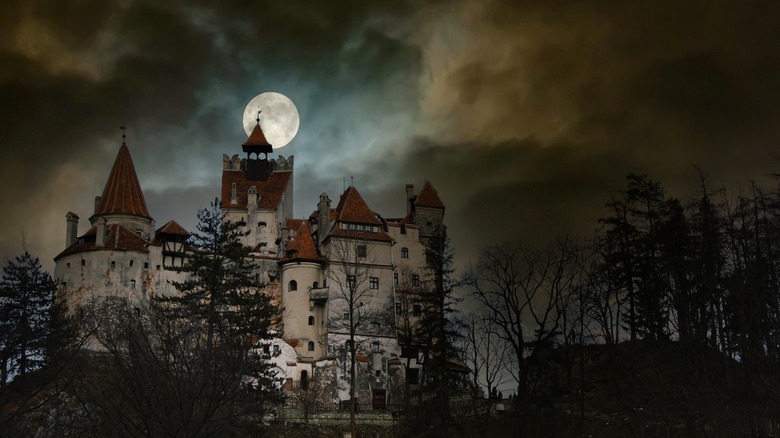The Real Reason There Is No State Of Transylvania
If you're a scary movie buff or a bibliophile, you've likely visited a fictional place known as Transylvania. Here is where you'll find many ghoulish characters lurking in the shadows. This popular gothic trope is rooted in a real-life Romanian destination nestled between the lush forest of Eastern Europe and the Carpathian Mountains (via Lonely Planet). This is the only place currently operating under the name of Transylvania.
Interestingly enough, that was not always the case. In 1775, a land speculator by the name of Richard Henderson came dangerously close to establishing a 14th colony (via Tennessee Encyclopedia). If things had gone according to his plan, Transylvania would have been a United States colony and maybe eventually an additional state. Under such circumstances, perhaps Americans would hear the word "Transylvania" and envision the sprawling Kentucky countryside.
Henderson's aspiration was to create this place called Transylvania out of the areas now known as Mid-Tennessee and Kentucky. He even went so far as to conduct negotiations with representatives from the Cherokee tribe, and it is said that he purchased large swaths of land in exchange for a meager price tag. So what was the Transylvania Purchase and why did it go awry?
The Transylvania Purchase would have made Transylvania a state
Before the ink on the feathered quill had dried, the state of Virginia moved in opposition to the Transylvania Purchase (via Tennessee Encyclopedia). Had this not been the case, modern maps of the U.S. would, indeed, have included a place called Transylvania. While it might not have contained blood-thirsty vampires, it would most certainly have been full of land speculators buying up millions of acres of land for token prices, which is equally scary. According to the Tennessee Encyclopedia, many historians believe Richard Henderson purchased over 20 million acres of land for what was the equivalent of approximately 10,000 British pounds. In U.S. currency, this equates to a paltry $13,445.
There were plenty of reasons to oppose Transylvania and the company that bore its name, including the unjust, imbalanced outcome of its negotiation. The Transylvania Purchase wasn't just unfair to the Cherokee people; it was also against the law. Purchasing this land was a direct violation of the Proclamation of 1763 (via History).
At this point, you might be wondering how land speculator Richard Henderson was punished for breaking the laws of his superiors and attempting to swindle the Cherokee tribe. In response to his actions, Henderson was awarded 200,000 acres soon after the Transylvania purchase was rejected.

